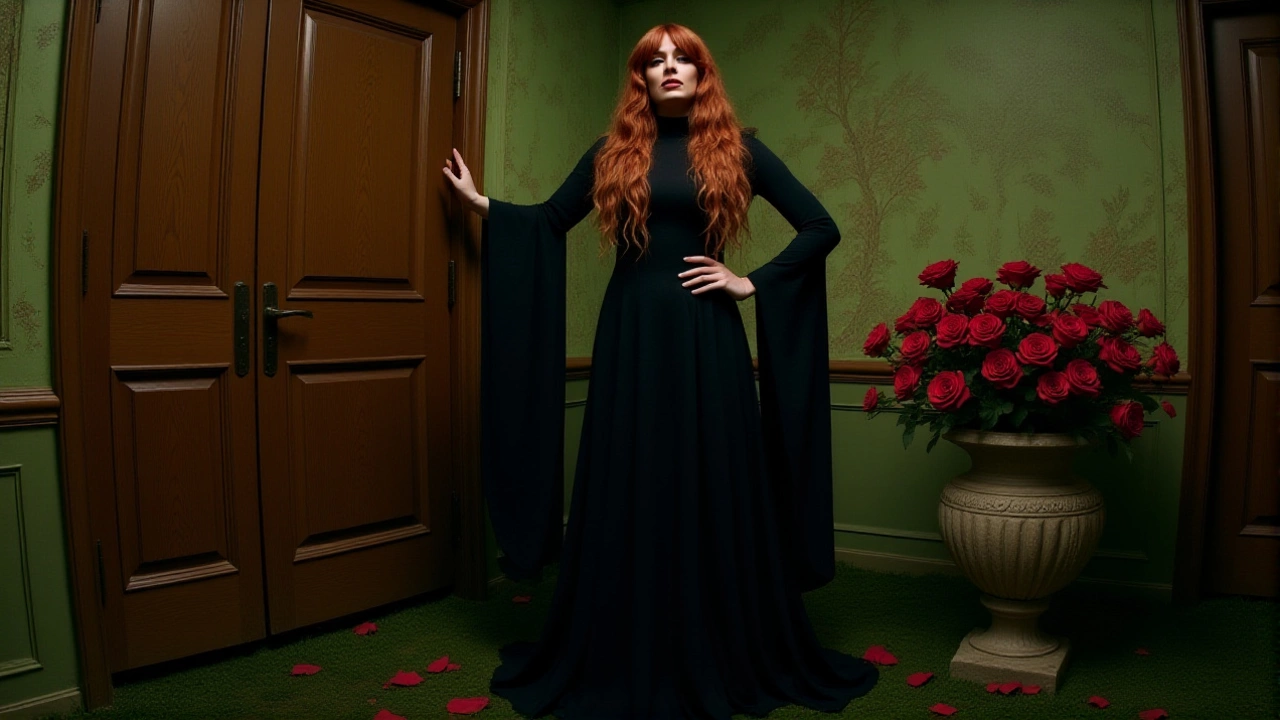When David Cromer stepped onto the creative roster for Gatsby: An American Myth, the theatre world took notice. The Tony‑Award‑winning director, known for his 2019 win for The Band’s Visit, will help steer the musical’s next phase – a developmental reading slated for the week of July 31, 2025, in London. The project pairs the haunting score of Florence Welch, frontwoman of Florence + the Machine, with a book by Pulitzer‑prize playwright Martyna Majok. Producers say the timing — a centennial celebration of F. Scott Fitzgerald’s 1925 novel — adds both pressure and promise.
Background & Development History
The musical first burst onto the scene in early 2021 when Welch announced her lifelong fascination with Fitzgerald’s tale. At that point, British director Rebecca Frecknall was attached, bringing a track record of gritty revivals like A Streetcar Named Desire. By the summer of 2022, the project shifted hands, and the celebrated Rachel Chavkin — who helmed the Grammy‑winning Hadestown — took the director’s chair for the world premiere at the American Repertory Theater (American Repertory Theater) in Cambridge, Massachusetts on June 5, 2024.
The Harvard‑based debut earned mixed reviews, with critics praising Welch’s lyrical ambition but questioning the pacing of Majok’s book. Nonetheless, the production’s bold aesthetic, complemented by choreographer Sonya Tayeh, sparked a buzz that attracted heavyweight backers.
New Creative Leadership
Enter David Cromer. In a statement released on July 22, 2025, Cromer described the musical as “one of the most elemental stories of the American Dream and its dark underbelly.” He added, “Building on the extraordinary work of Florence Welch and Martyna Majok is both a privilege and a thrilling challenge.”
Supporting him are long‑time producers Amanda Ghost of Unigram and Sir Len Blavatnik of Access Entertainment. The duo confirmed their confidence in Cromer’s vision, calling him “one of the most sought‑after directors working today.”
Joining the production team as a general partner is Carmen Pavlovic, representing Global Creatures — the company behind massive spectacles like King Kong and Moulin Rouge!. Pavlovic’s involvement signals a potential scaling up of the show’s visual ambitions.
The London Reading Event
Mark your calendars: the reading will take place during the week of July 31, 2025, at a yet‑to‑be‑revealed venue in London. The event is listed as an Gatsby: An American Myth London ReadingLondon. Organizers plan a stripped‑down staging, allowing the book, music, and lyrics to shine without full production trappings.
Industry insiders expect the reading to serve as a litmus test for future investors. If the audience response matches the electric buzz from the A.R.T. premiere, we could see a West End run slated for 2027, potentially racing against the unrelated yet successful Broadway adaptation of The Great Gatsby that debuted after the novel entered the public domain.

Industry Reactions & Comparisons
The news of Cromer’s attachment sparked a wave of commentary on social media. Theatre blogger Elena Ruiz called it “the perfect marriage of narrative depth and directorial bravado,” while Broadway veteran Mark Sinclair noted that “Cromer’s nuanced character work could finally give Welch’s towering score the emotional grounding it needs.”
Meanwhile, the competing West End/Broadway Gatsby musical, produced by DreamWorks Theatricals, has been drawing packed houses and rave reviews. Critics have highlighted its seamless integration of jazz‑age choreography with modern staging. This rivalry underscores why the London reading is more than a rehearsal; it’s a strategic move to claim a share of the cultural cachet surrounding the centennial.
Future Outlook and Next Steps
Producers have promised announcements “soon” after the London reading, hinting at potential dates for a full West End launch or even a transatlantic transfer. If financing lines up, Global Creatures may bring its trademark spectacle—think massive puppetry and immersive set pieces—to the production.
For now, the creative team remains focused on refining the book and tightening Welch’s lyrical motifs. Cromer’s recent comment that “the story lives in the tension between illusion and longing” encapsulates the artistic challenge ahead: honoring Fitzgerald’s myth while delivering a fresh, resonant theatrical experience for 21st‑century audiences.
- Key Fact 1: The London reading is scheduled for the week of July 31, 2025.
- Key Fact 2: David Cromer joins as director, bringing a Tony Award for The Band’s Visit.
- Key Fact 3: Music and lyrics are by Grammy‑nominated Florence Welch, with a book by Pulitzer‑winner Martyna Majok.
- Key Fact 4: Production backing includes Amanda Ghost (Unigram), Sir Len Blavatnik (Access Entertainment) and Global Creatures.
- Key Fact 5: The musical premiered at the American Repertory Theater on June 5, 2024, under director Rachel Chavkin.
Frequently Asked Questions
What is the significance of the London reading for the musical?
The reading serves as a critical development milestone, allowing creators to gauge audience reaction to the script and score before committing to a full West End production. Positive feedback could unlock additional financing and accelerate a theatre run slated for 2027.
How does David Cromer’s directing style differ from Rachel Chavkin’s?
Cromer is known for intimate character work and nuanced pacing, often emphasizing emotional truth over spectacle. Chavkin, by contrast, leans into visual symbolism and kinetic storytelling, which was evident in the A.R.T. premiere’s bold staging.
Will the musical feature any of Florence Welch’s previously released songs?
Welch is writing an original score for the show, but she hinted that thematic motifs from hits like “Shake It Out” may be re‑imagined to fit the Gatsby narrative, weaving familiar threads into new compositions.
How does this adaptation compare to the Broadway version of The Great Gatsby?
While both productions draw from the same source material, Cromer’s version emphasizes a lyrical, almost operatic feel rooted in Welch’s haunting music, whereas the Broadway show leans heavily on jazz‑age choreography and a more traditional musical theatre structure.
When can audiences expect a full production if the reading is successful?
Producers have hinted at a West End opening in late 2026 or early 2027, contingent on investor confidence and the reading’s reception. A Broadway transfer could follow, but timelines remain tentative.
